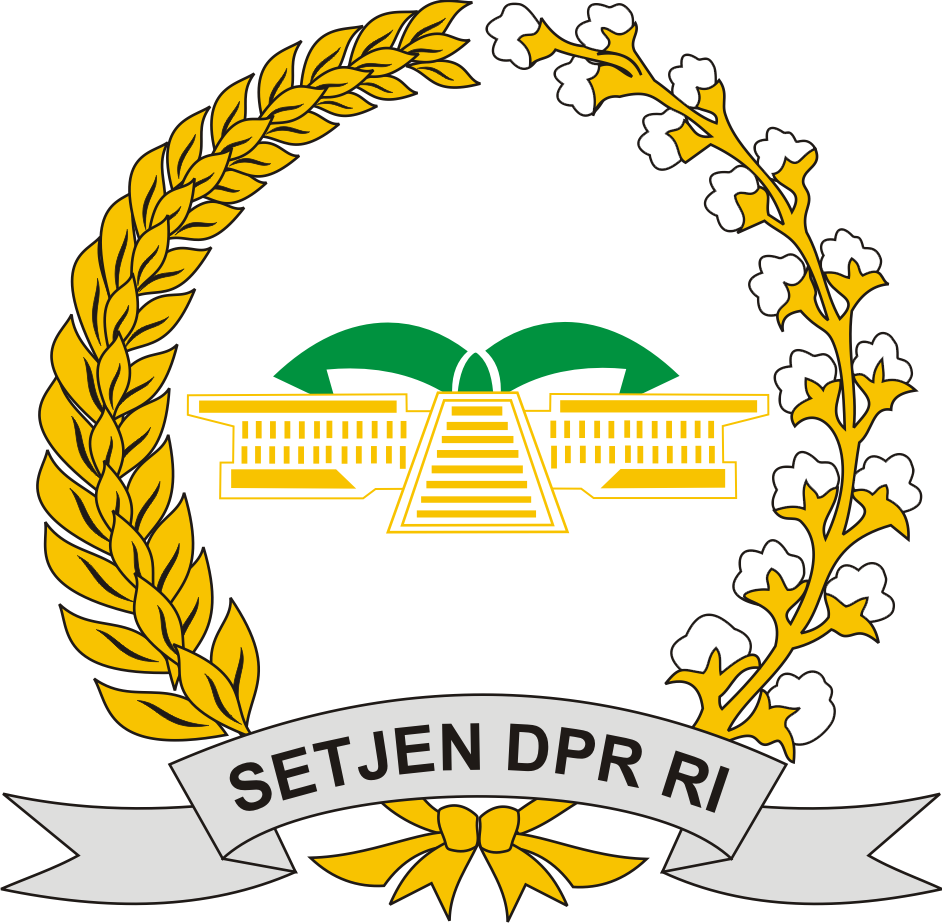The Right To Work in Article 27 Of The Un-Convention On The Rights of Persons With Disabilities: Towards An Inclusive Employment
Abstract
Work is essential for every human being, not only in economic meaning, but also in the sense of dignity. It guarantees to sustain life and also a tool of inclusion as a vital social relationship in a society. Dignity outlines the principle of equality to form an inclusive society. Thereunto, a social inclusion is an objective whereby disadvantaged groups are fully respected yet enjoying their maximum equal participation in the society. Social inclusion is the ultimate goal of disability movements. In this respect, human rights play its crucial roles to acknowledge the rights of persons with disabilities which centered on an equality and non-discrimination principles. United Nation Convention on the Rights of Persons with Disabilities (hereinafter CRPD), that has been ratified by Indonesian Government in 2011, draws the enormous attention specifically on the protection of the persons with disabilities within a broad application of general human rights norms. This treaty is considered as a modern human rights model of disability. With respect to work and employment for persons with disability, article 27 elucidates a development of the right to work of persons with disabilities to aim an inclusive employment. For this reasons, CRPD acknowledges the positive measures to be applied as the vigorous means in removing structural barriers to date.
Abstrak
“Bekerja” memegang peranan penting dalam kehidupan umat manusia, tidak hanya dalam arti ekonomi namun juga bermakna pemuliaan martabat manusia. Bekerja, selain dapat menjamin penghidupan, juga merupakan alat pencapaian inklusi dan partisipasi setara dalam relasi sosial. Martabat manusia menjadi landasan prinsip kesetaraan untuk membentuk masyarakat inklusif dimana kelompok rentan secara penuh dihormati hak-haknya hingga dapat berpartisipasi secara maksimal di tengah-tengah masyarakat. Hak Asasi Manusia (HAM) memegang peranan penting dalam hal ini, khususnya terkait dengan pemajuan hak-hak penyandang disabilitas dalam kerangka prinsip-prinsip kesetaraan dan non-diskriminasi. Konvensi Persatuan Bangsa-Bangsa tentang Hak-hak Penyandang Disabilitas (Atau selanjutnya disebut CRPD) yang telah diratifikasi oleh Pemerintah Indonesia pada tahun 2011, meletakkan dasar yang kokoh bagi perlindungan hak-hak penyandang disabilitas dalam penerapan kaidah-kaidah dasar HAM. Konvensi ini dianggap sebagai model disabilitas terkini yang mengacu pada pendekatan HAM. Terkait dengan hak atas pekerjaan khususnya untuk penyandang disabilitas, pasal 27 CRPD meletakkannya dalam rangka mencapai dunia kerja yang inklusif dan setara. Untuk itu, CRPD mendorong langkah-langkah positif (positive measures) sebagai sarana menyingkirkan hambatan struktural yang dihadapi oleh penyandang disabilitas selama ini.
Keywords
Full Text:
PDFReferences
Journal Articles
Cano. M Del Carmen Martín and YM De La Fuente Robles. "Social Work and Accessibility of Persons with Disabilities in Mexico: Hidden Barriers". Journal of Sociology and Social Welfare, Vol. 45, No. 1, March 2018.
De AsíS. Rafael. and others. “The Impact of the International Convention on the Rights of Persons with Disabilities on Qatari Domestic Legislation”. The Age of Human Rights Journal. No. 8. 2017.
Joly. Eduardo Daniel and María Pía Venturiello. "Persons with Disabilities: Entitled to Beg, Not to Work. The Argentine Case". Journal of Critical Sociology. Vol. 39 Issue 3. July 2012.
Kanter. AS. “A Comparative View of Equality Under the UN Convention on the Rights of PERSONS with Disabilities and the Disability Laws of the United States and Canada”. Windsor Yearbook of Access to Justice. Vol. 32. 2015.
LEE. S. and Sookyung Lee. “Comparing Employment Quota Systems for Disabled People Between Korea and Japan”. Asian Journal of Human Services. Vol.10. April 2016.
Lysaght. Rosemary and others. "Inclusion Through Work and Productivity for Persons with Intellectual and Developmental Disabilities". Journal of Applied Research in Intellectual Disabilities,.Vol. 30. 2017.
MC. Marumoagae. "Disability Discrimination and the Right of Disabled Persons to Access the Labour Market". Potchefstroomse Elektroniese Regsblad. Vol. 15 No 1. 2012.
Rose. Helena. Daiches A. and Potier J. “Meaning of Social Inclusion to Young People Not in Employment, Education or Training”. Journal of Community and Applied Social Psychology. Vol. 22. Issue 3. May/June 2012.
Books
Charlton, James I. Nothing about Us Without Us: Disability Oppression and Empowerment. Kota Terbit: University of California Press.1998.
Ferri, D and Lawson A. Reasonable Accommodation for Disabled People in Employment, a Legal Analysis of the Situation in EU Member States, Iceland and Norway. .2016.
https://publications.europa.eu/en/publication-detail/ /publication/ada7afd0-57ab-4495-8b03-f11757c561f6/language-de. accessed 30 December 2017.
Jaeger. Paul T and Bowman CA. Understanding Disability: Inclusion, Access, Diversity, and Civil Rights. London: Greenwood Publishing Group, 2005.
Kanter, Arlene S. The Development of Disability Rights under International Law. Oxon: Routledge. 2014.
Lawson, Anna. Disability and Equality Law in Britain. The Role of Reasonable Adjustment, Oxford; Portland, Or. Hart Pub. 2008.
Marjorie L, DeVault (ed). People at Work: Life, Power, and Social Inclusion in the New Economy. New York: NYU Press. 2008.
Mcquillan. Helen. Self-Employment Options For People With Disabilities Good Practice Review.Brothers of Charity Clare. 2012.
Smith, Olivia. Disability Discrimination Law. Kota Terbit: Thomson Reuters Round Hall. 2010.
O’Reilly, Arthur. The Right to Decent Work of Persons with Disabilities. Geneva: International Labour Office. 2007.
International Instruments
United Nation, ‘General Comment No.18 on International Covenant on Economic, Social and Cultural Rights’.
United Nations High Commissioner for, ‘General Comment No. 5 ICESCR: Persons with Disabilities’. Refworld. 1994.
http://www.refworld.org/docid/4538838f0.html.
‘The Universal Declaration of Human Rights. United Nations. (1948)
‘International Covenant on Economic, Social and Cultural Rights’. 1966 http://www.ohchr.org/EN/ProfessionalInterest/Pages/CESCR.aspx. accessed 16 April 2016.
‘OHCHR | International Convention on the Elimination of All Forms of Racial Discrimination’.http://www.ohchr.org/EN/ProfessionalInterest/Pages/CERD.aspx. accessed 23 December 2017.
‘Convention on the Rights of Persons with Disabilities’ .http://www.un.org/disabilities/convention/conventionfull.shtml. accessed 24 September 2016.
‘Convention on The Rights of Persons with Disabilities’. no date. http://www.un.org/disabilities/convention/conventionfull.shtml. accessed 14 December 2015.
‘General Comment No.6 on Equality and Non-Discrimination of The Convention on the Rights of Persons with Disability (2018)’.
‘International Covenant on Civil and Political Rights’. no date http://www.ohchr.org/en/professionalinterest/pages/ccpr.aspx. accessed 25 October 2016.
‘International Covenant on Economic, Social and Cultural Rights’. http://www.ohchr.org/EN/ProfessionalInterest/Pages/CESCR.aspx. accessed 9 June 2016.
‘General Comment No.2 (2014) Accessibility, Convention on the Rights of Persons with Disabilities’.
‘General Comment No. 3 (2016) on Women and Girls with Disabilities, Convention on the Rights of Persons with Disabilities.’ (no date).
‘General Comment No. 5 (2017) CRPD on Living Independently and Being Included in the Community’.
Sustainable Development Goals (SDGs) and Disability | United Nations Enable’. no date.https://www.un.org/development/desa/disabilities/about-us/sustainable-development-goals-sdgs-and-disability.html. accessed 17 April 2018.
Others
Commitee on the Rights of Persons with Disabilities: Concluding Observation on the Initial Report of Ethiopia ( 31 August 2016)’.
Commitee on the Rights of Persons with Disabilities: Concluding Observation on the Initial Report of Latvia (10 October 2017)’.
Commitee on the Rights of Persons with Disabilities: Concluding Observation on the Initial Report of Luxembourg (10 October 2017)’.
Commitee on the Rights of Persons with Disabilities: Concluding Observation on the Initial Report of Austria, Adopted by the Commitee at Its Tenth Session, 2-13 September 2013’.
Consideration of Reports Submitted by States Parties under Article 35 of the Convention Concluding Observations of the Committee on the Rights of Persons with Disabilities (Sixt Session 19-23 September 2001) to Spain’.
Commitee on the Rights of Persons with Disabilities: Concluding Observation of the Commitee on the Rights of Persons with Disabilities to Tunisia (5th Session 11-15 April 2011)’.
Including the Rights of Persons with Disabilities in United Nations Programing at Country Level: A Guidance Note for United Nations Country Teams and Implementing Partners. United Nation Development Group. 2011. https://www.google.com/search?q=Including+the+Rights+of+Persons+with+Disabilities+in+United+Nations++Programming+at+Country+Level%3A+A+Guidance+Note+for+United+Nations+Country+Teams+and+Implementing+Partners.+United+Nation+Development+Group+(2011)&ie=utf-8&oe=utf-8&client=firefox-b. acessed 13 April 2107
Ahead - Accommodations at Work. no date. "Reasonable Accommodations at Work", https://www.ahead.ie/employer-accommodations. accessed 30 December 2017.

This work is licensed under a Creative Commons Attribution-NonCommercial-ShareAlike 4.0 International License.
Refbacks
- There are currently no refbacks.



.png)
1.jpg)



 Yeni Rosdianti
Yeni Rosdianti








